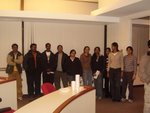By Joseph Turner, JobChangeSecrets.com
Want to get your online resume noticed and have employers picking up the phone and calling you?
Then forget how pretty your resume is. What really matters is how your resume scores on a search. Most resumes today go straight to a computer tracking system that saves online resumes in the company database allowing for later searches. A computer will "score" your resume by the number of keywords or "buzzwords" that the employer finds most relevant to their needs. If you don't account for this, you'll just sit waiting by the phone for the call that never comes.
Keywords, Keywords, and More Keywords
The magic is in the keywords and how and where you can use them. Focus on the keywords most likely to be used by a human resources person or recruiter doing the resume search for a particular job requirement. The greater the number of relevant keywords, the higher relevancy score your online resume will receive.
Let's look at the four major keyword areas you need to account for in an online resume that will get an employer to pick up the phone and call you:
1. "Keyword Competencies":
A.) List this section at the beginning of your resume to introduce your skill sets from an interviewing standpoint.
B.) Include no more than 75 keywords. List as many relevant, searchable keywords that describe your potential job title, technical skills, management or organizational skills, relevant software and/or mechanical abilities and expertise as you can. Include anything that might be important to the particular job.
For example, if you were a Java Programmer, your Keyword Competencies section might look like this:
"Java, Visual C++, perl, ticl, application development, visual basic, Windows NT/XP, programming, GUI, html, project management, layer 2, BSEE, etc".
2. "Job Description": Include every title that may pertain to your duties and function. For example, if your official title is "Member of Technical Staff", other companies may call that a Software Engineer, Software Developer, or even a Programmer. Take this into account when you write your resume for online use. The computer doesn't care as long as you have all your bases covered for whatever human-based search may arise.
3. "Objective": Once again, keep it limited to specific keywords when you identify your present and/or aspiring job title with an added major skill or function (such as project management, mergers and acquisitions, electronic design, product verification, quality control, etc).
4. "Past Experience": Many searches are performed in the interest of finding people who have worked for or with certain companies. This can mean not only working as an employee, but also having worked with their products or with them as a client or vendor. Be sure to list all the major companies with whom you have had connection. This includes experience with their tools or products or your roles as either a vendor or a customer.
Summary
The bottom line is not how pretty your resume looks. The most important element is to cover all the possible keywords that an employer will be searching for. There's potential gold in your background and you want to make certain that it is brought to the surface. Keywords are truly powerful for this.
Subscribe to:
Post Comments (Atom)



1 comment:
This is a wonderful opinion. The things mentioned are unanimous and needs to be appreciated by everyone.
Hazel Knight
resumes
Post a Comment